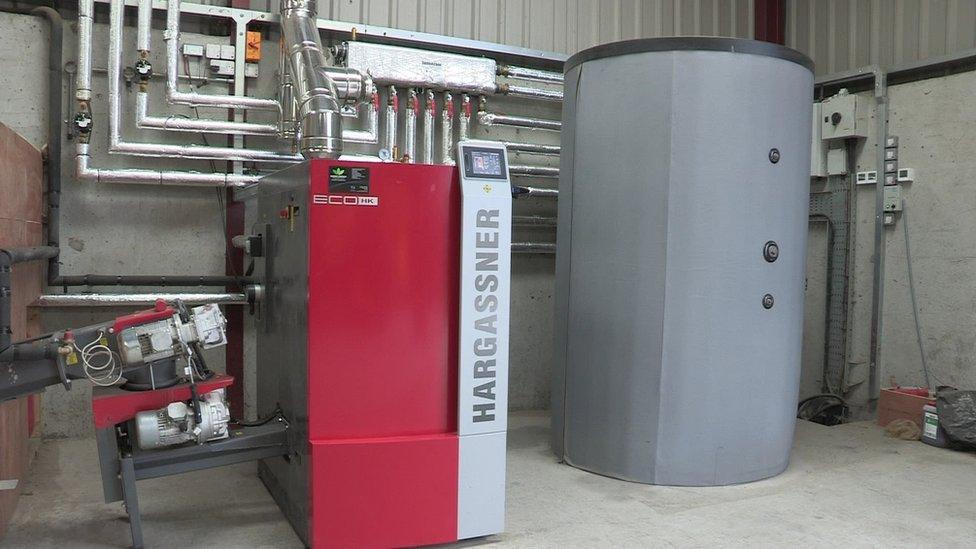Boiler owners to lodge court appeal
- Published

A row over the contentious RHI scheme prompted Stormont's institutions to collapse last January
Owners of Renewable Heat Incentive scheme (RHI) boilers are to lodge an appeal against a court decision which left them on reduced tariffs.
The Renewable Heat Association (RHANI) represents more than 500 members who own 1,100 boilers.
On Wednesday, the organisation confirmed it would appeal the decision.
The RHI scheme offered to subsidise the cost of its claimants' fuel for running their heating systems.
However, the fuel cost far less than the subsidy received - effectively meaning claimants could earn more money by burning more fuel.
A judge-led inquiry is now ongoing at Stormont to investigate the scheme.

A biomass boiler, similar to those owned by some RHI scheme claimants
Overspend dispute
The RHANI challenged temporary cost controls introduced by the Department for the Economy (DfE) last year.
The move by the department meant that owners who had been accredited to the scheme before November 2015, had received more generous payments than those who followed.
The DfE argued it was necessary to have all applicants on a tiered and capped tariff to protect the public purse from a projected overspend estimated at £700m over 20 years.
That projected overspend was disputed by the boiler owners who claimed it was much lower.
The judge found in favour of the department, meaning a capped and tiered tariff, introduced in April 2017, was allowed to stand.

The RHI scheme subsidised the cost of claimants' fuel - mostly wood pellets - for running renewable heating systems
The department has already announced it intends to extend them for a further year while it works on long-term cost controls.
Meanwhile, a costs hearing this week will decide whether boiler owners should bear the full costs of their lost legal battle.
They had used a costs protection mechanism, called the Aarhus Convention, which limited their exposure to the department's costs to £15,000.
The convention is intended to provide costs protection to applicants who want to challenge government decisions on environmental grounds.
The department is now contesting that and asking the court to grant them full costs.
RHANI also had to pay its own costs of the court challenge which are estimated at more than £200,000.
- Published23 October 2019

- Published7 November 2017
